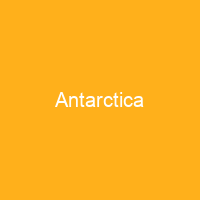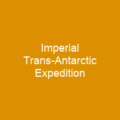Antarctica: The Frozen Continent
Imagine a place so cold, so vast, that it seems almost alien—welcome to Antarctica! This continent, Earth’s southernmost and least-populated, is a land of extremes. It covers over 14 million square kilometers, making it the fifth-largest continent after Asia, Africa, North America, and South America.
Antarctica is not just a place; it’s a metaphor for resilience and survival. Picture this: you’re standing at the edge of an ice sheet that averages 1.9 km in thickness—enough to bury most of your favorite cities! The coastline, with its ice shelves and ice walls, stretches almost 18,000 kilometers, like a frozen fortress guarding the secrets within.
But what makes Antarctica truly unique is not just its size or beauty; it’s the life that thrives there. Penguins, seals, and tardigrades—these are some of the hardy souls that call this place home. Even more fascinating are the lakes beneath the ice, like Lake Vostok, which has been isolated for thousands of years.
The History of Antarctica
Antarctica’s history is as intriguing as its geography. The name ‘Antarcticus’ was first used by Marinus of Tyre in the 2nd century CE, and it wasn’t until the early 19th century that explorers like James Cook began to chart this frozen wilderness. The first documented landing on Antarctica was made by John Davis in 1821, marking a significant milestone in human exploration.
Over time, various expeditions have ventured into these icy realms, each one adding to our understanding of the continent’s mysteries. From the Nimrod Expedition led by Ernest Shackleton to Roald Amundsen’s historic journey to the South Pole, every step has been a testament to human perseverance and curiosity.
Antarctica Today: A Global Concern
Today, Antarctica is governed by about 30 countries through the Antarctic Treaty System. This treaty ensures that the continent remains a place of peace and scientific research. However, the challenges it faces are immense. Climate change, pollution, and ozone depletion pose significant threats to this pristine environment.
The ice sheets, which cover most of Antarctica, are melting at an alarming rate. The consequences could be dire for global sea levels. Scientists from around the world are working tirelessly to understand these changes and find ways to mitigate their impact.
Exploring Antarctica
From the first international agreements in 1964 to protect its biodiversity, to the establishment of research stations like McMurdo Station, human activity has left an indelible mark on this continent. These stations are not just places for scientific inquiry; they are also hubs of cultural exchange and celebration.
Events like Icestock at McMurdo Station and the Antarctic Film Festival bring together researchers, artists, and adventurers to share their experiences and insights. The Antarctic Ice Marathon and Yacht Race offer a unique challenge to those who dare to venture into this frozen world.
The Future of Antarctica
As we look towards the future, the challenges facing Antarctica are clear. Climate change is not just an abstract concept; it’s a reality that affects every corner of our planet. The Antarctic ice sheets play a crucial role in regulating global temperatures and sea levels.
Research stations like those operated by countries such as the UK, Belgium, Argentina, Australia, Chile, and Russia are vital to understanding these changes. They provide critical data on climate patterns, glacial dynamics, and biodiversity. These efforts are essential for predicting future scenarios and developing strategies to mitigate the impacts of global warming.
Antarctica is not just a place; it’s a symbol of our planet’s resilience and fragility. As we continue to explore and understand this frozen continent, let us also remember the importance of preserving its unique ecosystems and the lessons they hold for our future.

You want to know more about Antarctica?
This page is based on the article Antarctica published in Wikipedia (retrieved on February 5, 2025) and was automatically summarized using artificial intelligence.






